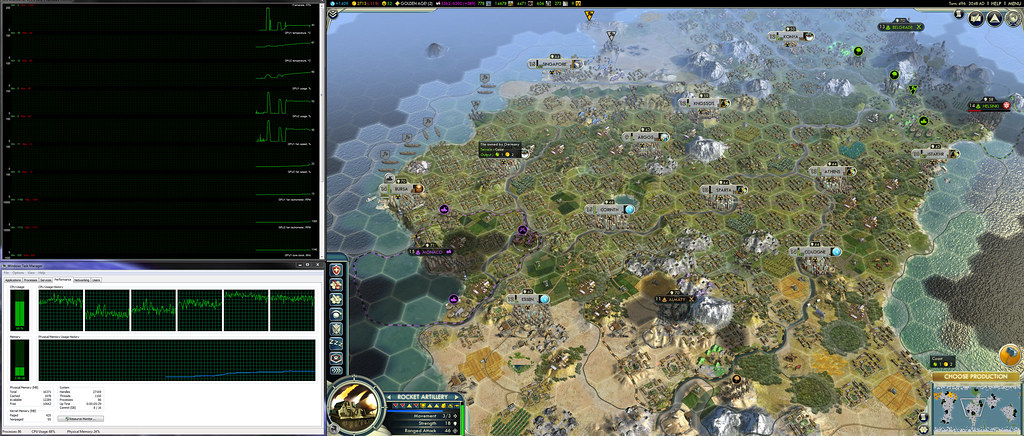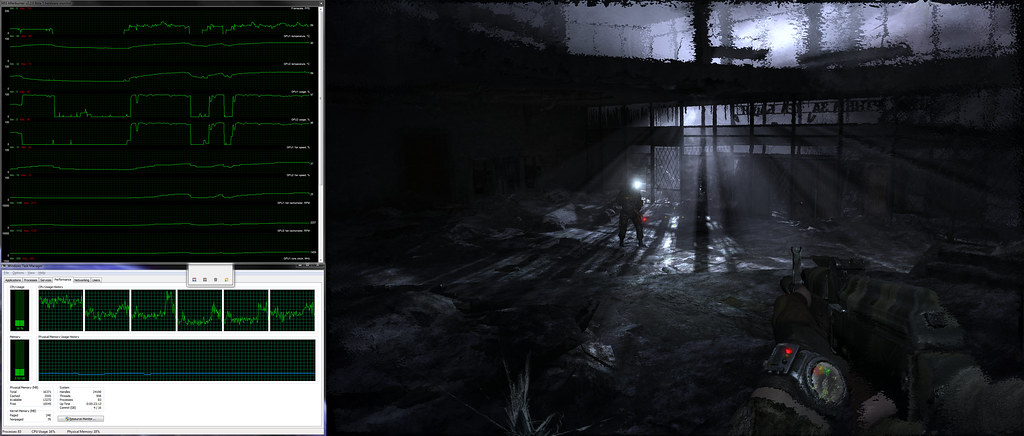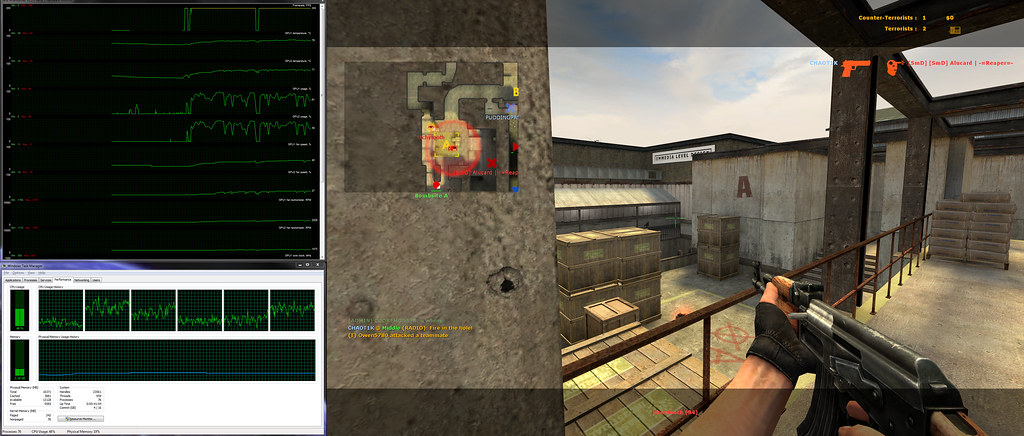Zarathustra[H]
Extremely [H]
- Joined
- Oct 29, 2000
- Messages
- 38,862
Why doesn't someone tell me again how games don't use more than two cores, because it's obviously true. 
Civilization V is a great example of multithreaded gaming: (click for larger)

Metro 2033 doesn't do too shabby either: (click for larger)

Even an older title like Counter-Strike: Source uses multiple threads. (click for larger)

Taken on my rig (see sig) a few minutes ago with nothing of significance running in the background. Even on older games like CS:S where it is obvious that most of the work is being done on a few of the threads, ALL threads are at least loaded to ~10% or so. Is someone going to tell me that this doesn't matter or is useless?
These are just three games I happen to currently be playing and thus have installed. I don't think you'll find significantly different results if you load up pretty much any recent game...
I - for one - look forward to some 8 core multicore gaming on my Bulldozer (when I get one)
Civilization V is a great example of multithreaded gaming: (click for larger)

Metro 2033 doesn't do too shabby either: (click for larger)

Even an older title like Counter-Strike: Source uses multiple threads. (click for larger)

Taken on my rig (see sig) a few minutes ago with nothing of significance running in the background. Even on older games like CS:S where it is obvious that most of the work is being done on a few of the threads, ALL threads are at least loaded to ~10% or so. Is someone going to tell me that this doesn't matter or is useless?
These are just three games I happen to currently be playing and thus have installed. I don't think you'll find significantly different results if you load up pretty much any recent game...
I - for one - look forward to some 8 core multicore gaming on my Bulldozer (when I get one)
![[H]ard|Forum](/styles/hardforum/xenforo/logo_dark.png)